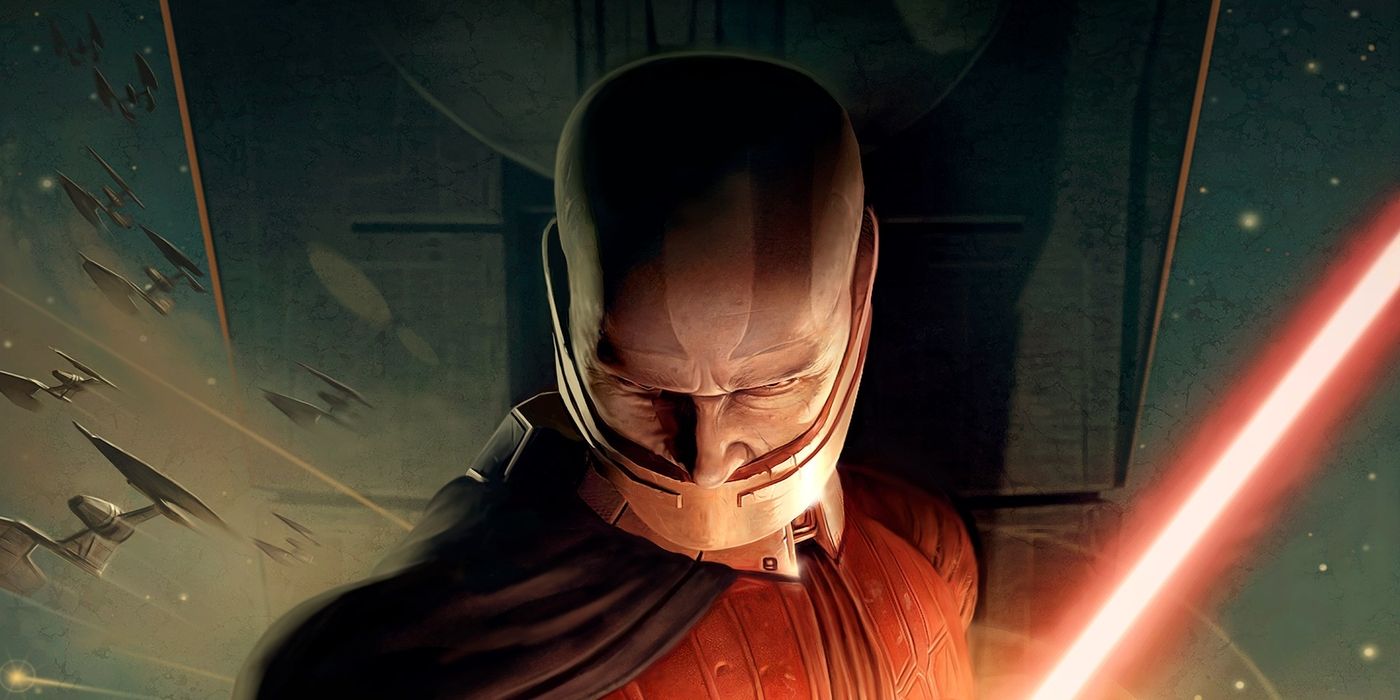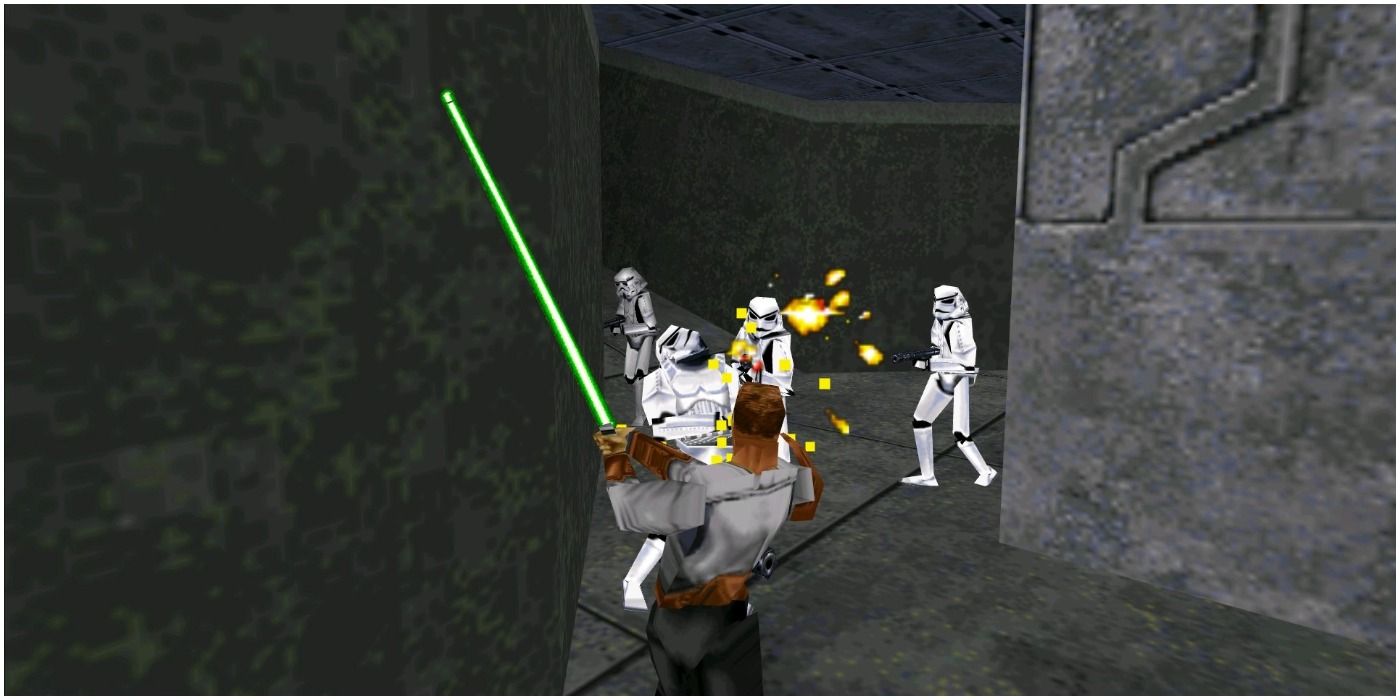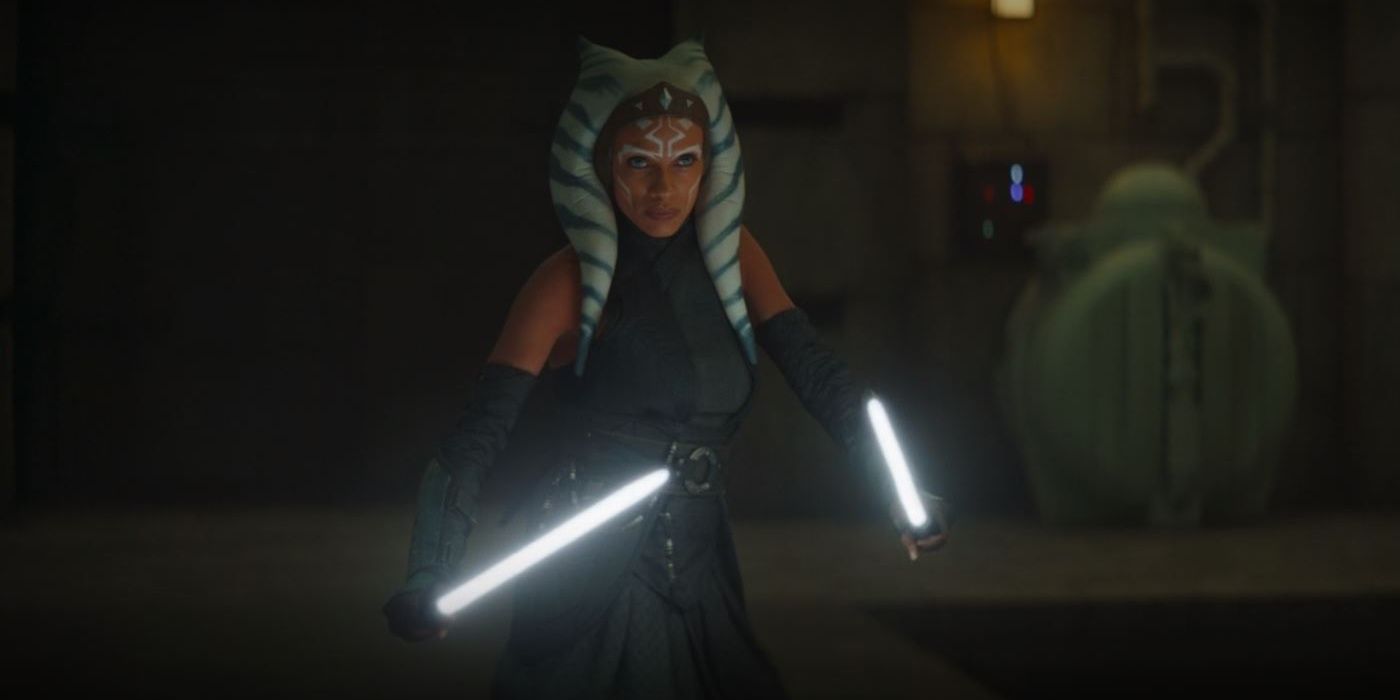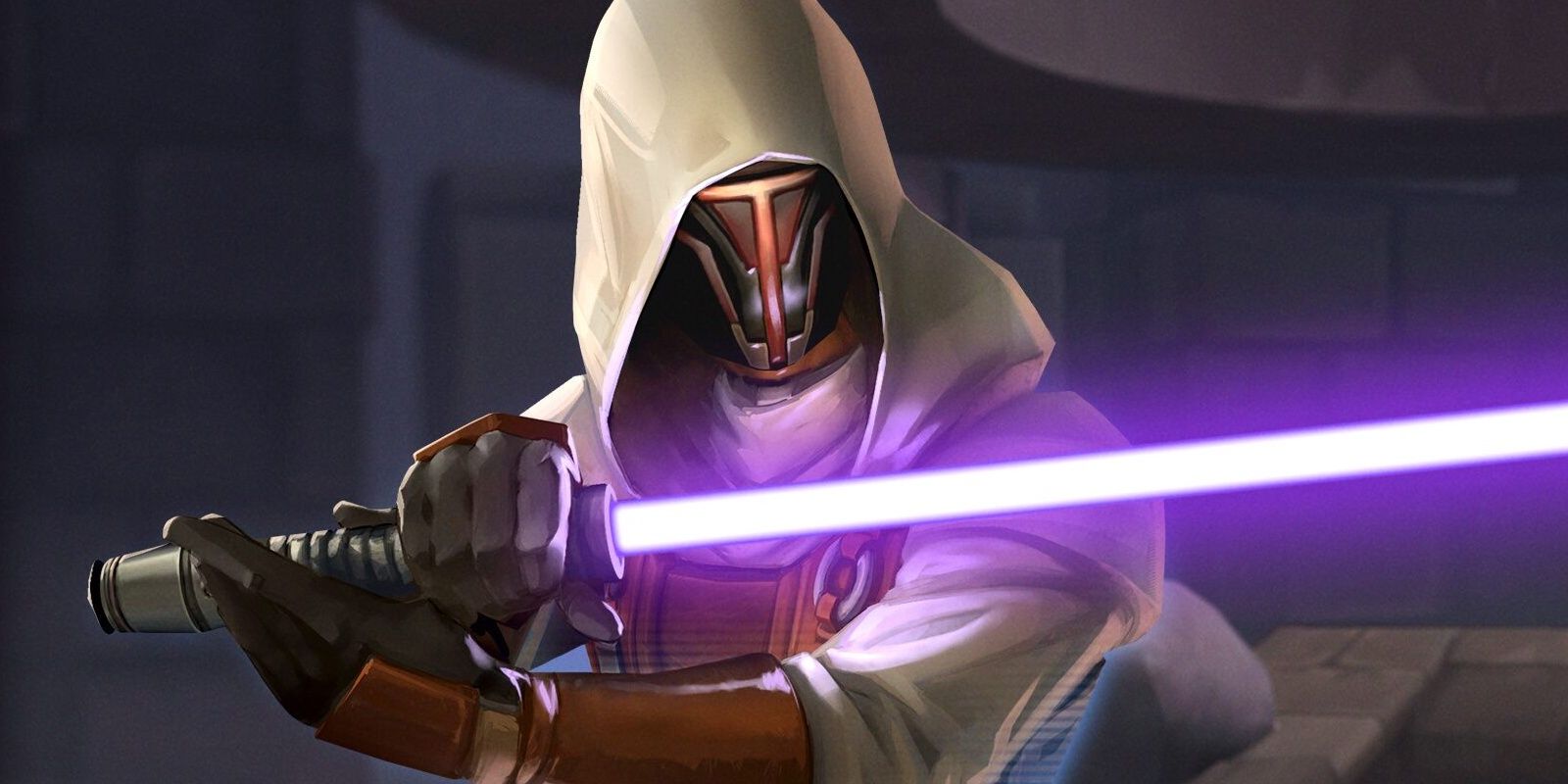Given the massive scale of the franchise, which encompasses television shows, books, games, and of course films, Star Wars has been home to countless types of stories since A New Hope premiered over 40 years ago. Tales of love, temptation, perseverance, and family have all popped up frequently throughout the series' expansive library of stories. However, the underlying theme behind many of these adventures is the eternal struggle between the light and dark sides of the force — a conflict that several Star Wars games, most prominently Star Wars: Knights of The Old Republic, are built around.
Unlike purely scripted forms of media, games have an added degree of interactivity; movie-goers don't get to decide if Anakin Skywalker succumbs to the Dark Side, but players can determine if Kyle Katarn or Revan will. The choice between being a noble Jedi or a ruthless Sith lord has long been a feature of the franchise's games, but not recently. Most recent Star Wars games have often forgone that complexity in favor of exciting multiplayer or scripted single-player storylines. With a rumored Knights of The Old Republic remake on the horizon, it seems likely the series could revisit a mechanic that was once a staple of Star Wars games.
The Light and Dark Sides In Star Wars Games
The trend of forcing players to choose between the light and dark sides of the force was arguably kickstarted by the Jedi Knight series. Jedi Knight: Dark Forces 2 allowed players to make choices for protagonist Kyle Katarn that would pull him towards either end of the force, subsequently affecting which abilities players gained throughout the game. One of the game's sequels, Jedi Academy, had a similar feature where players could learn abilities from both the dark and light sides of the force, but it was impossible for them to learn and master every power. Both games even featured alternate endings depicting their protagonists following the path of the dark side.
The KOTOR games later expanded on the foundation established by Jedi Knight by being heavily choice-driven — a quality commonly seen in BioWare and Obsidian's later offerings. Players can customize each game's protagonist, decide how they fight, and what side of the force they're devoted to. Naturally, one's alignment with the force affects the ways in which a character can be built. Being too attuned to either side can restrict players from equipping certain items, as well as make certain abilities cost more force points to use. Similar concepts are at play in the MMO Star Wars: The Old Republic, which borrows heavily from the KOTOR series' gameplay.
The Force Unleashed and its sequel were some of the last Star Wars games to feature a choice between the light and dark sides of the force. However, there aren't any gameplay implications this time around. Starkiller's quest is fairly linear, with both games only allowing for deviation from the main course at the very end. Each game burdens players with a choice between light and dark, but it really only affects the ending.
Knights Of The Old Republic Remake: A Grey Area Of The Force
The battle between the light and dark sides of the force is an easy conflict to follow, but over the years, it's gotten a little stale. An unwillingness to look at this struggle outside of the context of "good versus evil" is perhaps the biggest failing of every Star Wars game that presents players with that choice. Many of the games have a tendency to paint light-side-allied forces (Jedi, Republic, Rebels) in an overwhelmingly positive light that may not necessarily be justified.
If a Knights of The Old Republic remake is going to re-incorporate its predecessors' morality systems, it should seek to move beyond looking at the series' conflicts as simply black and white. While the dark-side wielding Sith are undoubtedly abhorrent by nature of their rejection of peace, the Jedi aren't exactly upstanding moral figures, either. The films and The Clone Wars television show both demonstrate that members of the Jedi Order have a tendency to be dogmatic, emotionally detached, and they're also quick to judge and ostracize one of its own, as evidenced by the trial of Ahsoka Tano.
The later seasons of The Clone Wars saw Ahsoka taken to trial for a murder she did not commit. As a result, the Jedi Order expelled her, only to later find evidence that she was innocent. Following this revelation, the Jedi offered to bring her back on board, but after having seen the Order's true colors during her trial, she refused and pursued another path independent of both the Jedi and Sith codes. She continues to serve the light side, but of her own accord, not because it is commanded she do so.
How a Knights Of The Old Republic Remake Can Innovate Its Morality System
Ahsoka's storyline is just one example of how recent Star Wars media hasn't hesitated to cast criticism on its heroes. The Mandalorian has criticized the New Republic for its incompetence and actions following the Galactic Civil War, with one supporting character going as far as to compare the group to invaders during a conflict on the planet Morak. Additionally, The Last Jedi showed that even Luke Skywalker, who is incredibly in touch with the light side of the force, isn't exactly a shining beacon of morality, as demonstrated by his attempted murder of Ben Solo.
Like the aforementioned pieces of Star Wars media, a KOTOR remake ought not to view morality as a binary concept, but rather a multi-faceted one. It would be refreshing should KOTOR's remake cast judgment on players based on how they're using their abilities, rather than what side of the aisle they fall on. One such scenario could involve a force-user harnessing the powerful dark side of the force not as a Sith Lord, but as a fierce protector of the downtrodden.
In the process of blurring the lines, KOTOR's remake could also stand to benefit from avoiding making the "light side ending" the only morally good, desirable ending available, like so many other Star Wars games do. It would be ideal if the traditionally "good" ending was given relative moral parity with the dark side ending. Of course, this certainly shouldn't be done by attempting to humanize or sanitize deplorable, morally bankrupt factions like the Sith. Rather, the faction representing the light could be laced with such inexcusable flaws that prevent it from ever being declared "heroic." Instead of picking good or evil, players would be tasked with picking a poison — an infinitely more complex, engaging conflict.
Star Wars started as a tale of good versus evil, but as it's aged, it has become so much more than that. With the rumored KOTOR remake likely incorporating a morality system after the games took such a long break from the feature, it would be a treat to see a new Star Wars game ask players tougher questions than ever before. It's harder to think of a game better suited for that task than a possible remake of Knights of The Old Republic.
A remake of Star Wars: Knights of the Old Republic is rumored to be in development.




